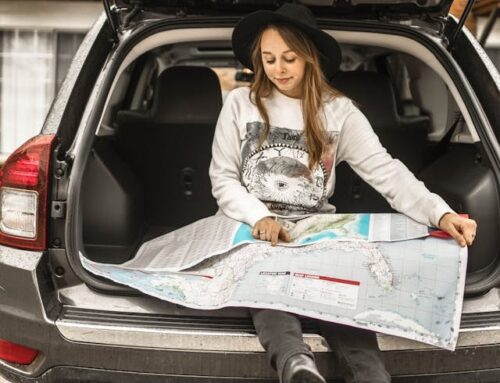Travel Safety Tips Everyone Should Know Before Leaving Home

Travel Safety Steps Everyone Should Take Before Leaving Home

We can never be too careful when it comes to staying safe. There are so many ways to end up in an accident, that too, with no fault from your side. The situation can become more difficult if you are traveling abroad. You might face any mishap, which can lead to loss of lives, or you may end up in hospitals with mild to severe injuries. While the risk of one’s life is a factor, the legal implications are another. Here are our travel safety tips to protect yourself while traveling.
Imagine lying on the hospital bed in a foreign nation and worrying about the medical bills or a court case. Having an injury lawyer can help you relieve the burden from your shoulders. You shouldn’t have to bear the consequences of someone’s carelessness or negligence.
However, what if you try and minimize the risk of accidents while you go abroad on a trip? Putting lives in danger is no fun, whether it is yours or others. By taking a few safety precautions before stepping out, you can avoid accidents.
Check for Travel Advisories
The US Department of State has displayed travel advisories for every country in the world on its website. It lists all the difficulties and current threats that can affect the safety of travelers. Study them very well and focus on details such as local laws and customs, entry and exit norms, health conditions, etc. This will help you in making the right decision about whether the country is safe for visiting or not. You will get awareness about what is happening internationally and how it may impact your travel plans.
Check if your health insurance covers you overseas
Travelers often make the mistake of assuming that their health insurance works overseas and provides full coverage for every destination and situation. But it is not so. Hence, in case you are traveling abroad, then check your existing health plan and if the need arises, then talk to your insurance provider. Fill the gaps by opting for a supplemental international travel health insurance plan. These focus on secondary coverages when primary health insurance stops. It might charge you a few additional dollars, but the amount will help you be safer than sorry.
Contact your doctor about medications to carry
The same rule applies when you are taking medicines as well. Hence, consult your doctor about medications you may require if you are out of the country for a long. And in case you have a child with you, then it is better to make sure that their vaccination schedule is not coming in between your travel. All in all, it is better to remain alert and avoid causing harm to yourself and others.
Travel with a copy of all of your prescriptions
It is also a good idea to keep a copy of the prescription with you. This is as some medicines meant for pain relief, better sleep, allergies are regarded as illegal in many nations. Hence, it is better to be careful than being in stress later. Ensure to carry them all together in a personal bag that is handy with you in case the need arises. Also, laminate it to save them from any water spills that may lead to unnecessary chaos.
Save the contact information for your country’s embassy
It is always better to remain prepared for the unexpected. You might lose your passport, get sick, or face any emergency. For any such crisis, be it big or small, your country’s embassy can act as the best resource. Hence, keep its contact information in your phone and communicate with them to handle all kinds of issues.
Know the country’s emergency contact number
Ensure to keep the emergency contact numbers of the country even before you reach there. These generally include ambulance, firefighters, and police. Most countries have assigned a three-digit code (like 911) to call for help, but these numbers often vary by country. Write down or save them in your cellphone as if any disaster strikes, you won’t be in a position to search for the numbers. You might be too panicky even to think straight.
Secure a proper means of communication
Using a local sim card is considered the most affordable and easiest when communicating with your loved ones from aboard. But you will have to make sure that your existing phone is compatible with that country’s sim or not. If possible, consider buying a mobile phone that will work in the travel country. Also, you can download many apps that will provide safe travel information and keep you safe.
Conclusion
You might leave your home for any reason, but you cannot avoid risk. And the risk usually increases while you are traveling. Hence, it is best to manage it beforehand so that you can stay safe. Follow the above new-found knowledge and enjoy your trip with confidence.




